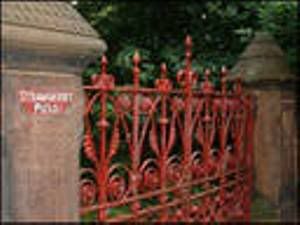Post by PorkyPies on Jun 3, 2007 14:43:02 GMT 1

Rock's most famous album celbrated its 40th birthday
BEATLES: Sg. Peppers Lonely Hearts Club Band
WHEN The Beatles released Sgt Pepper's Lonely Hearts Club Band on June 1, 1967, they were adding to the global profile of a movement which had already swept across America.
Psychedelia and the hippy movement had been around since the first half of the decade, and had started to influence the Beatles and other British bands from 1965 onwards. They in turn again influenced their American counterparts.
And by 1967, it was a worldwide phenomenon.
Which is just one reason why Sgt Pepper enjoyed the success it did - with 27 weeks at the top of the UK album charts.
At the time The Times newspaper published a glowing but very serious review, applauding the Beatles for saving the pop charts, which they said had become "depressing" and full of the same old "nondescript" songs. Not so Sgt Pepper, which the reviewer saw as bringing hope to the genre.
They said: "Psychedelia can be diagnosed in the fanciful lyric and intriguing asymetrical music of Lucy in the sky, as well as in the sound effects of Lovely Rita (she is a parking meter warden), and the hurricane glissandi of A day In The Life which has been banned by the BBC for its ambivalent references to dug taking - though if anything on the record is going to encourage dope it is surely the "tangerine trees and marmalade skies" and "girl with kaleidoscope eyes" in Lucy in the Sky which contains none of these whoosh noises."
advertisement
But Sgt Pepper's did not exist in a vacuum, musically or socially. June 1967 also saw album releases from Donovan, the king of sunshine pop with Sunshine Superman, plus the debut offering from a young man named David Bowie.
It was also the year of The Doors, Jefferson Airplane and the Jimi Hendrix Experience, and saw the release of seminal albums from the Rolling Stones (Their Satanic Majesties Request) and Pink Floyd (Piper At The Gates Of Dawn).
Music was at the centre of Britain's burgeoning youth scene, which was more politically aware and active than ever before. The hippies had two goals - to change the world and to have a good time doing it. And compared to the dreary decades that preceded the 60s, the latter was just as important as the former.
It was in response to the grey and authoritarian 40s and 50s that psychedelic drugs like LSD - to which there have been alleged to be numerous references on Sgt Pepper's - suddenly enjoyed a boom in popularity. And when Rolling Stone Mick Jagger was sentenced to three months in prison for possession of amphetamines, the popular press (including, surprisingly, the Daily Express) spoke out against a sentence which they saw as being grossly disproportionate to the values of the time.
Meanwhile, across the water, the Haight-Ashbury district of California was developing a reputation as the centre of the American psychedelia movement, and was home to bands including Jefferson Airplane and the Grateful Dead. The area became known as the centre of the hallucinogenic drugs movement, much to the dismay of many existing residents, and students flocked from over the United States to join the Summer of Love.
In January of 1967, Timothy Leary had spoken at Haight's Human Be-In about the positive properties of hallucinogenic drugs, and later in the year he toured college campuses, encouraging students to form their own psychedelic religions.
It seemed that the world was changing for the better.
But no movement can last forever. In Haight-Ashbury, overcrowding, homelessness, hunger, drug problems, and crime afflicted the neighborhood. Leary was in trouble with the law, and "death of the hippie" ceremonies were being held.
Back home, cracks were starting to show for the Beatles. Manager Brian Epstein died of an accidental drug overdose in August of 1967, and their musical film, Magical Mystery Tour, was criticised by fans who couldn't enjoy the psychedelic colours on their black-and-white television sets. And while they went on to record The White Album and Abbey Road in the next two years - ensuring that the band ended on a high - the new decade had barely begun before the official announcement came - the Beatles had split up.
Gone, but not forgotten, the Summer of Love and eradicably changed people's perceptions of the world. The feeling was summed up by writer and journalist Hunter S. Thompson when he came to write his quasi-documentary of those crazy years in the 1960s, Fear and Loathing in Las Vegas: "So now," Thompson said, "less than five years later, you can go up on a steep hill in Las Vegas and look west, and with the right kind of eyes you can almost see the high-water mark - that place where the wave finally broke and rolled back."








